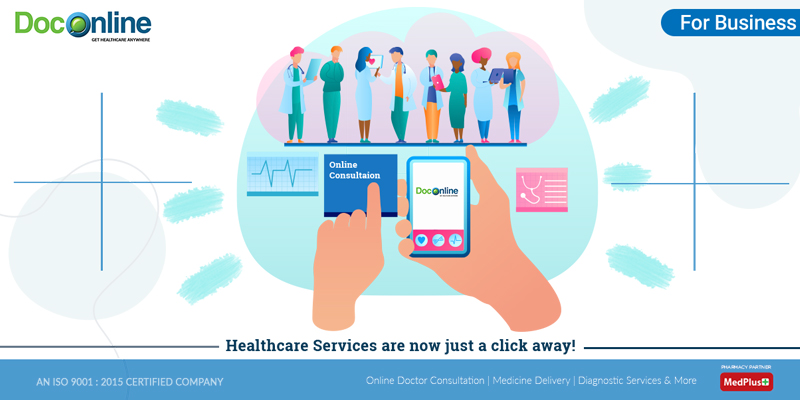The Influence of Subscription Based Healthcare on Conventional Medical Practices
Browsing the Future of Medication With Subscription-Based Medical Care Provider
As the healthcare sector evolves, subscription-based solutions arise as a critical version guaranteeing to improve individual care delivery. The solutions to these inquiries can essentially modify our approach to health care.
Rise of Subscription Medical Care
As healthcare systems worldwide face boosting pressures from increasing costs and need for services, the introduction of subscription-based health care designs has become a transformative trend. This innovative approach is disrupting standard health care shipment by providing a foreseeable, flat-rate payment framework for medical solutions. Rooted in the concepts of attendant medicine, subscription-based health care allows suppliers to concentrate on individualized client care while simultaneously managing operational efficiencies.
The enhancing customer demand for transparency and predictability in medical care costs has actually driven the change in the direction of this version. Subscription-based solutions typically use direct accessibility to healthcare professionals, which can lower the management concerns connected with insurance claims and repayments.
This model is obtaining traction among varied health care companies, from key treatment medical professionals to specialized clinics, by straightening financial incentives with preventative and continuous treatment. By changing the focus from volume to value-based care, subscription healthcare has the potential to improve the landscape, promoting an extra lasting and patient-centered strategy to wellness management.
Benefits for Patients

Furthermore, subscription-based solutions frequently emphasize precautionary care, urging regular examinations and health testings. This positive method can bring about very early discovery of health issues, possibly improving end results and minimizing long-lasting healthcare prices for patients. Such versions typically use transparent rates, enabling people to better understand their health care expenses and avoid unanticipated clinical costs.
The personalized nature of subscription-based health care additionally enhances individual experience. People can get customized healthcare plans that fit their details needs, promoting an extra patient-centric method.
Innovation's Duty in Transformation

Expert system (AI) plays an essential duty in anticipating analytics, helping in early diagnosis and tailored therapy strategies. AI formulas examine huge datasets to determine patterns that could be neglected by human observation, hence boosting professional decision-making. Electronic wellness records (EHRs) streamline person info management, making certain connection and coherence of treatment across numerous services and service providers.
Blockchain modern technology improves data safety and privacy, critical for preserving patient count on digital systems. It allows secure and transparent transactions of medical information, making sure that delicate info remains secured. With the integration of artificial intelligence and AI, blockchain can automate intricate health care procedures, decreasing management burdens.
Considerations and obstacles
While technology moves the abilities of subscription-based health care solutions, it likewise presents a set of difficulties and considerations that should be dealt with to make sure effective application. One substantial obstacle is the fair access of these solutions.
Information personal privacy and safety and security represent another important consideration. Subscription-based services frequently entail the collection and storage of substantial quantities of individual health and wellness info. Companies need to stick to strict data defense laws to preserve client count on and prevent unapproved accessibility, which might result in significant moral and legal repercussions.
Furthermore, the sustainability of registration designs positions an obstacle. As health care needs advance, preserving an affordable balance in between subscription costs and solution quality is essential to stop patient frustration and attrition. Additionally, integrating these solutions within traditional medical care systems needs seamless interoperability in between platforms, which is often a facility and resource-intensive endeavor. Resolving these difficulties is crucial as subscription-based healthcare solutions remain to expand and develop.
Future Implications for Medicine
Subscription-based medical care solutions are positioned to dramatically affect the future landscape of medication by improving exactly how treatment is accessed and delivered. These models provide the prospective to democratize healthcare access, providing patients with more prompt and tailored treatments. By leveraging innovation, such as telemedicine and data analytics, membership services can facilitate continual surveillance and customized health and wellness management, thus boosting results and minimizing the concern on traditional medical care systems.
As these solutions gain traction, they could boost a change towards preventative treatment, stressing the value of early detection and monitoring of chronic conditions. This aggressive method may inevitably reduce healthcare prices by alleviating the need for pricey treatments arising from late-stage disease monitoring. Registration designs supply a scalable option to address variations in healthcare gain access to, specifically in rural or underserved populations.
Nevertheless, the change towards subscription-based versions necessitates attending to moral and navigate to this site regulatory considerations, consisting of data privacy and fair accessibility. As the industry progresses, collaborative efforts between policymakers, modern technology developers, and doctor will be vital to developing robust frameworks that secure person interests while fostering advancement. Inevitably, these solutions promise to contribute dramatically to an extra reliable, patient-centered medical care ecological community.

Final Thought
Subscription-based healthcare services stand for a substantial evolution in the medical area, offering predictable expenses and individualized treatment that enhance ease of access and focus on preventative measures. Technological improvements, such as telemedicine and AI-driven analytics, promote tailored client experiences, enhancing general wellness end results. Obstacles such as information personal privacy and visit homepage fair accessibility must be addressed to ensure the widespread benefits of these services. As the healthcare landscape evolves, subscription models are poised to play a crucial role fit the future of medication.
As the medical care market develops, subscription-based services arise as an essential model assuring to improve client care distribution.As health care systems around the world face raising pressures from rising prices and demand for solutions, the development of subscription-based health care versions has actually emerged as a transformative fad (subscription based healthcare).With the increase of subscription-based medical care designs reshaping typical health care distribution, individuals are beginning to experience considerable benefits from this cutting-edge method. As medical care needs advance, preserving an economical equilibrium between registration fees and solution quality is crucial to avoid person dissatisfaction and attrition.Subscription-based medical care services are poised to significantly influence the future landscape pop over to this site of medication by reshaping exactly how treatment is accessed and delivered